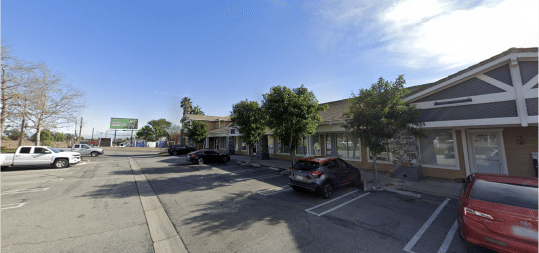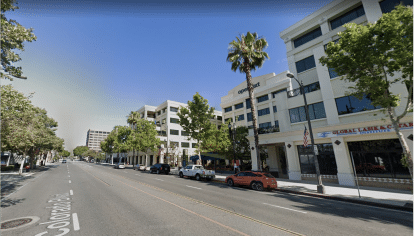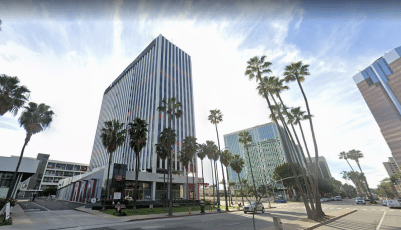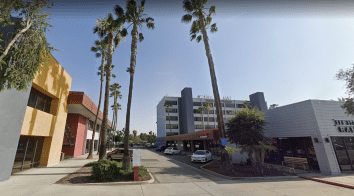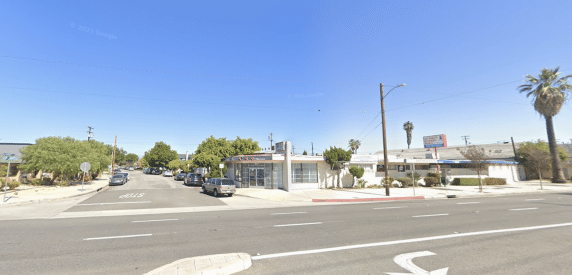Understanding the bail process is crucial when you or a loved one faces arrest in Bellflower. Bail bonds provide a means to secure release from jail while awaiting court proceedings. CBB Bail Bonds is here to assist you in navigating this challenging period with professionalism and care. Our experienced bail bondsmen are dedicated to providing prompt and reliable service to ensure a swift release.
We understand that an arrest can be overwhelming and confusing. That's why our CBB Bail Bonds team takes the time to explain every step of the bail process. We're committed to making the process as smooth and stress-free as possible. With our help, you can focus on preparing for your court appearance and getting back to your daily life. Our bail bond company will provide you with a range of bail bond services to ensure you have what you need to post bail in Los Angeles County as soon as possible. Learn more about how a licensed bail bondsman from our Bellflower bail bonds company can help you. Then, contact us today to schedule a consultation with our team.
A. Arrest and Booking
An arrest marks the beginning of the bail process. The police will take the individual to a local jail where booking occurs, involving recording personal information, fingerprints, and photographs. The police also check for any outstanding warrants and store personal belongings. This process can vary in length, contingent on the jail's procedures and the individual's situation. Let us show you why we are one of the best bail bond companies in the local area.
B. Initial Court Appearance
Following the arrest, the defendant will have an initial court appearance. This is usually the arraignment, where the charges are formally presented. The defendant will be provided the opportunity to enter a plea. Understanding your rights and the legal consequences of this appearance is crucial. Reach out to us if you have questions about how this process will unfold.
C. Setting Bail Amount
The bail amount is set during the initial court appearance. Factors influencing the bail amount include the gravity of the offense, the defendant's criminal history, and the likelihood of the defendant returning for court dates. Bail can vary from a few hundred to thousands of dollars. Many factors are involved, but we can walk you through your options if you cannot afford to pay your bail.
D. Contacting CBB Bail Bonds
Once the bail amount is set, you should contact CBB Bail Bonds. Assistance from our agents is available 24/7. We will explain the bail bond process, answer your questions, and start the process to secure the defendant's release. Contact us today to speak to our team if you need help posting bail.
E. Completion of Necessary Paperwork
Our bail bond agents will help you in navigating through the paperwork required to secure a bail bond. This includes a bail bond agreement and possibly collateral documents. We ensure all paperwork is completed accurately and swiftly to expedite the release process. We have a lot of experience in this process, and we can use this experience to help you expedite the paperwork.
F. Release of the Defendant
After the bail bond is processed and the bail amount is paid to the court, the defendant is released from jail. It's important to understand that release times can vary depending on the jail's procedures and current workload. We know you want to get out of jail as quickly as possible. We believe that nobody should have to stay in jail longer than they must.
There are several types of bail available, each suited to different circumstances. Make sure you know the differences to ensure you select the best bail bonds in Bellflower for your situation.
Cash bail means paying the bond amount in cash (or via a check). This is a straightforward option when the bail amount is manageable and available. The full amount is returned after the court case concludes, provided the defendant adheres to all court requirements.
A surety bond is a common form of bail where a bail bonds company, like CBB Bail Bonds, steps in. You pay a percentage of the bail amount to the bondsman, who then secures the defendant's release. This fee is non-refundable but makes bail accessible when the full amount is too high. Our bail services and bail agents are with you through the entire process. Call us if you have questions about a surety bond.
Real estate is used as collateral to secure bail in a property bond. The property's value must typically be double the bail amount. This option can be time-consuming, as it requires property assessments and court approval.
Immigration bonds are specifically for non-citizens detained by Immigration and Customs Enforcement (ICE). These bonds allow the detainee to be released while their immigration case is processed. They ensure the detainee's appearance at all immigration hearings.
The court considers a handful of factors when setting bail amounts. These include:
In the end, it's important to remember that bail is set on a case-by-case basis, and each situation is unique.
When someone co-signs a bail bond, they assume significant responsibilities.
The co-signer will guarantee that the defendant will appear for all court dates. They are also financially responsible for the full amount of the bail if the defendant flees. It's a role that requires trust in the defendant and an understanding of the legal process.
The co-signer is accountable for ensuring the defendant will show up for all court dates. They are also financially responsible for the full bail should the defendant decide not to show up. It's a role that requires trust in the defendant and an understanding of the legal implications. Co-signers often provide collateral, like property or money, as security for the bail bond.
Co-signing a bail bond involves risks. The co-signer is answerable for the full bail amount if the defendant doesn't arrive in court. Additionally, any collateral provided is at risk. Co-signers need to be fully aware of the defendant's situation and trust their commitment to comply with all court requirements.
Violating bail terms has serious repercussions.
If a defendant does not show up in court, the court may issue a warrant for their arrest. Then, the entire bond could be forfeited, and the co-signer becomes liable for the full amount. This situation can lead to financial strain for the co-signer and further legal trouble for the defendant.
Bail can be revoked if the defendant breaches bail conditions. This means they will be returned to jail and may not be eligible for bail again. Defendants must understand and adhere to all bail conditions to avoid revocation.
The defendant and the co-signer face legal and financial consequences if bail conditions are not met. The defendant can face additional charges, while the co-signer might lose their collateral and must pay the full bail amount.
Securing a bail bond often requires financial planning.
Collateral is something you tie to the bond to make it more affordable. Common examples can include property, vehicles, jewelry, or other valuable assets. These items can be used to secure the bail bond and are returned once the case is resolved and all financial obligations are met. It's essential to understand the value of your collateral and the conditions under which it may be forfeited.
CBB Bail Bonds offers flexible payment plans to make the process more accessible. This option could make it easier for you to pay the bail bond fee over time, making it easier to manage financially. It's important to understand the terms of these plans and ensure they fit your budget.
The fee tied to a bail bond is usually a percentage of the total bail amount. This fee is non-refundable, even when the case is resolved. You need to ensure you know the fee structure and the possibility of further charges before agreeing to a bail bond.
Here is the contact information for local authorities:
Facing arrest is daunting, but you don't have to navigate it alone. CBB Bail Bonds is here to guide you through every step of the bail process. Don't let the complexities of the bail system overwhelm you. Contact us for a free initial consultation. We'll explain your options, answer your questions, and help secure a swift release.
"*" indicates required fields
